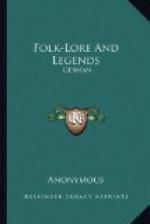A SUCCINCT ACCOUNT
OF
MY LORD TARBAT’S RELATIONS,
IN A LETTER TO THE HONORABLE ROBERT BOYLE,
ESQUIRE, OF THE PREDICTIONS MADE BY
SEERS, WHEREOF HIMSELF WAS EAR-AND EYE-WITNESS.
Sir,—I heard very much, but believed very little of the second sight; yet its being assumed by several of great veracity, I was induced to make inquiry after it in the year 1652, being then confined in the north of Scotland by the English usurpers. The more general accounts of it were that many Highlanders, yet far more Islanders, were qualified with this second sight; and men, women, and children, indistinctly, were subject to it, and children where parents were not. Sometimes people came to age who had it not when young, nor could any tell by what means produced. It is a trouble to most of them who are subject to it, and they would be rid of it at any rate if they could. The sight is of no long duration, only continuing so long as they can keep their eyes steady without twinkling. The hardy, therefore, fix their look that they may see the longer; but the timorous see only glances—their eyes always twinkle at the first sight of the object. That which generally is seen by them are the species of living creatures, and of inanimate things, which be in motion, such as ships, and habits upon persons. They never see the species of any person who is already dead. What they foresee fails not to exist in the mode, and in that place where it appears to them. They cannot well know what space of time shall intervene between the apparition and the real existence. But some of the hardiest and longest experience have some rules for conjectures; as, if they see a man with a shrouding sheet in the apparition, they will conjecture at the nearness or remoteness of his death by the more or less of his body that is covered by it. They will ordinarily see their absent friends, though at a great distance, sometimes no less than from America to Scotland, sitting, standing, or walking in some certain place; and then they conclude with an assurance that they will see them so, and there. If a man be in love with a woman, they will ordinarily see the species of that man standing by her, and so likewise if a woman be in love. If they see the species of any person who is sick to die, they see them covered over with the shrouding sheet.




